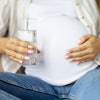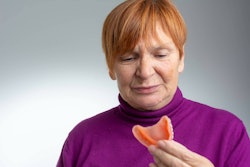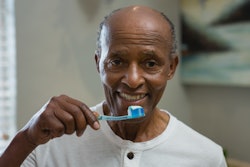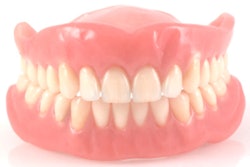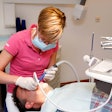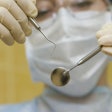
Equipping nursing home staff with proper training and techniques to provide effective oral care to residents reduced the number of pneumonia cases at facilities during the first year of a two-year study. However, a lack of significant results in the second year raised red flags about the sustainability of mouth care programs.
"It is possible for nursing home staff to reduce pneumonia, but doing so will require sustained efforts," wrote the study authors, led by Sheryl Zimmerman, PhD, of the Cecil G. Sheps Center for Health Services Research at the University of North Carolina at Chapel Hill (JAMA Network Open, June 19, 2020).
Pneumonia affects more than 250,000 nursing home residents each year. Studies have shown that poor oral hygiene is associated with pneumonia in seniors, specifically those diagnosed with dementia. Despite this link, caregivers often lack the time, tools, and knowledge to provide this vulnerable community with proper oral hygiene. About 84% of dependent, long-term care residents don't receive oral hygiene care, though it is known that regular toothbrushing, flossing, and other care reduces their bacterial load and makes them less susceptible to infections.
The study enrolled 2,152 residents from 14 nursing homes in North Carolina. Of this group, 1,219 residents were randomized to receive mouth care from trained staff, while the remaining 933 residents served as controls.
Nursing home staff were introduced to the Mouth Care Without a Battle program, which is a standardized program that teaches that mouth care is healthcare. A specialist in dementia and a dental hygienist provide customized techniques, such as gentle massage of cheeks to get patients to open their mouths and how to clean dentures, and products for mouth care. Caregivers also learn how to provide care to residents who are resistant, cannot perform it themselves, or are in special situations. Residents in the control group were given standard care, according to the authors.
Nursing homes that implemented the mouth care program saw a 31% reduction of pneumonia cases during the first year of the program. There was no significant statistical difference for those who underwent the mouth care program in the second year, the researchers reported.
In addition to the mixed results, the study had limitations, including generalizability, according to the authors. Nursing homes were only eligible if they had evidence of proportionately high rehospitalization rates of long-term care residents for pneumonia. Also, pneumonia cases were based on medical record accounts, so the number of cases may not be accurate due to incomplete documentation or misinterpretation of infiltrate on chest x-rays.
A significant reduction in the number of cases in the first year and no decrease in the second year likely was due to sustainability issues, they wrote.
"Improving mouth care in [U.S. nursing homes] may require the presence and support of dedicated oral care aides," the authors wrote.

